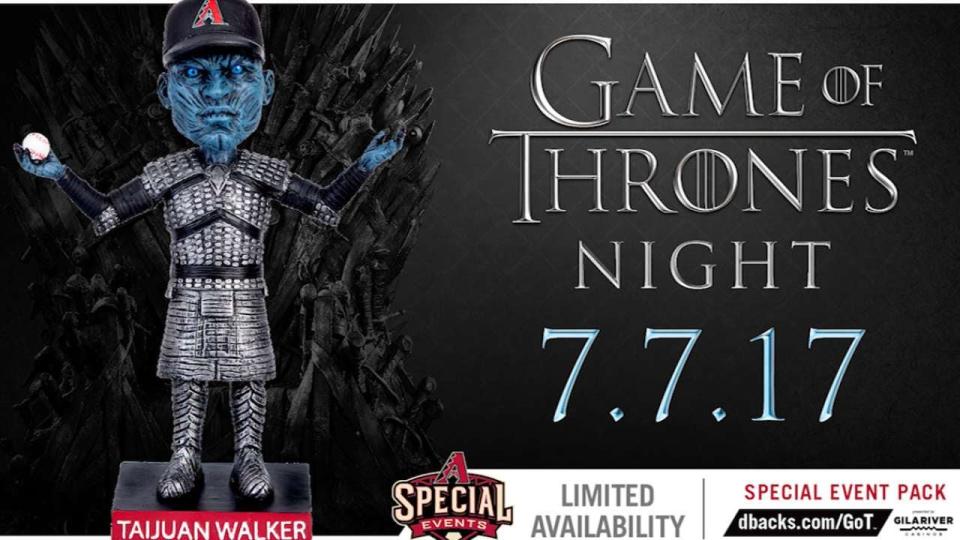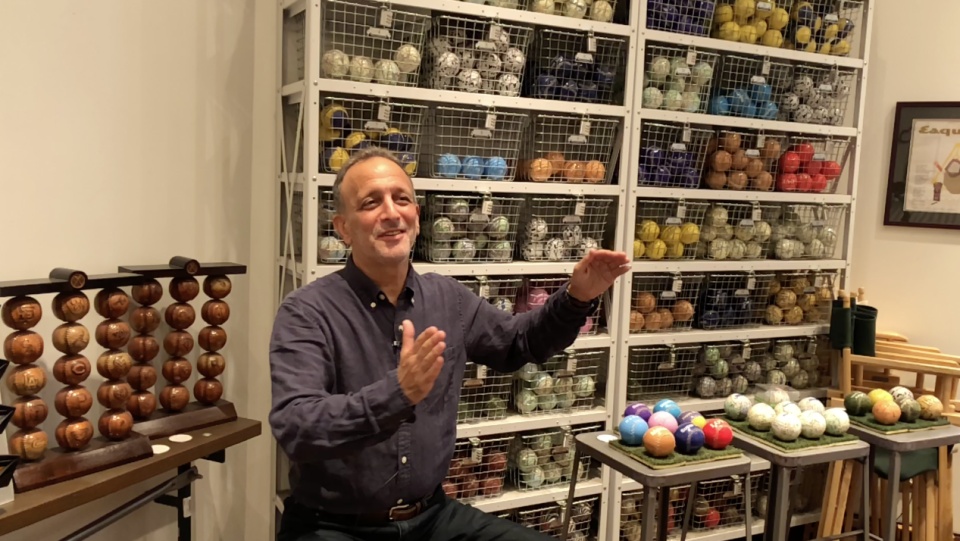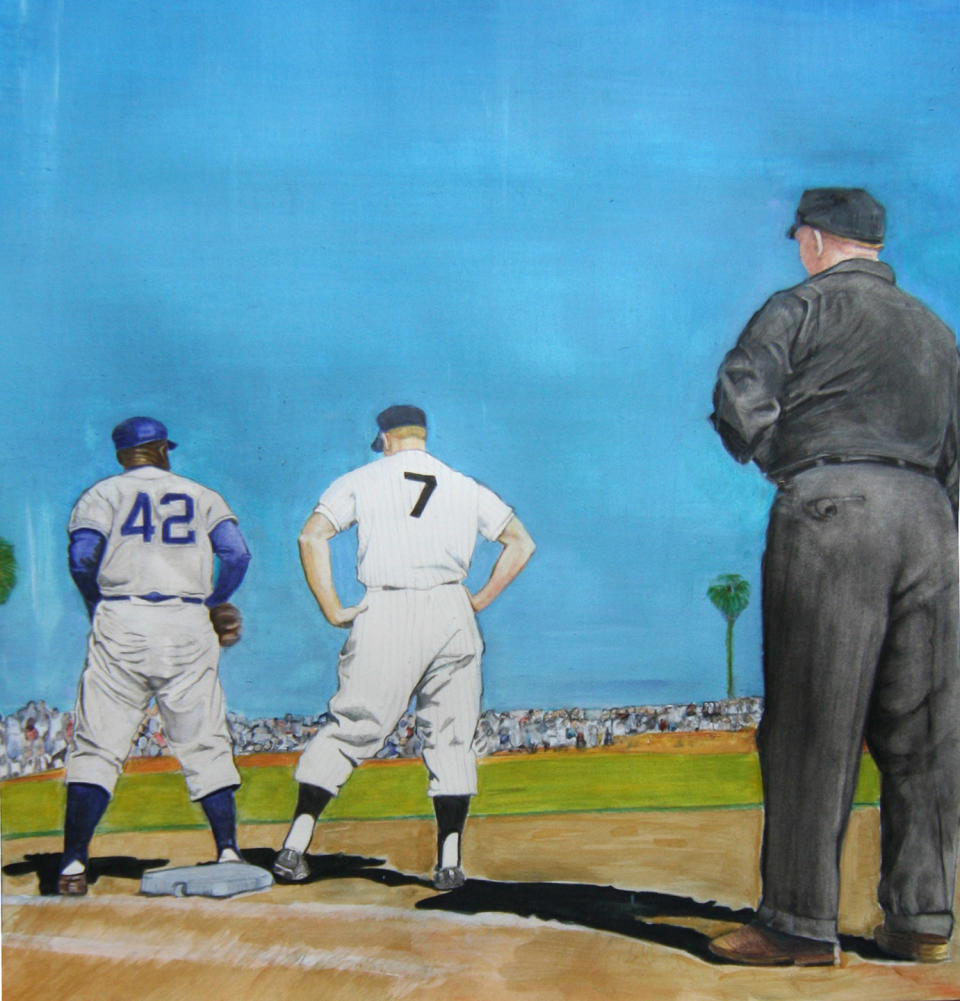'A handwritten letter by Tom Seaver': Inside the business of baseball nostalgia
The downward trend in Major League Baseball attendance is alarming. Average attendance at pro ballparks as of early June was at a 15-year low. And in a January 2018 Gallup poll, 37 percent of Americans said their favorite pro sport to watch is football, while only 9 percent said baseball.
This is despite rising investment from MLB sponsors, a new commissioner with progressive views on gambling and pace of play, and two thrilling postseasons in a row (with the Chicago Cubs breaking a 108-year dry spell in 2016, then the Houston Astros winning their first ever title in 2017).
One of the areas MLB is eyeing to help stoke attendance and broader fan interest is collectibles.
In recent years, ballparks have ramped up the number of giveaways and promotions like bobblehead nights. And many of the bobbleheads now up for grabs at ballparks aren’t even modeled after a player on the home team but are tie-ins to TV and film franchises like Game of Thrones, Guardians of the Galaxy, and Captain America.

MLB is eyeing digital collectibles, too. Later this summer it will launch a blockchain-based game in which users pay in cryptocurrency to buy and trade digital memorabilia tied to specific game moments. Skeptics may scoff, but the league is clearly willing to throw things at the wall right now and see what sticks to lure casual fans back to the sport.
“Collecting items related to your team, engaging with your team in a new way” can reignite fan excitement, says MLB executive VP of gaming and new business ventures Kenny Gersh. “Those moments in sports that happen that you want to remember and cherish.”
MLB is also working with Hunt Auctions again this year to put on an auction of rare memorabilia during All-Star Weekend. The docket includes a famous photograph of Babe Ruth from 1921 and Mickey Mantle’s 300th home run baseball from 1960.
Baseball collectibles: timeless appeal
Collectibles make sense for the league as a vehicle for growth because rare items tend to transcend the current popularity of the sport. (Just two years ago, the famous Jumbo T206 Honus Wagner baseball card sold for a new record $3.2 million.)
Take Bergino Baseball Clubhouse, a baseball art shop that opened in 2010 in Manhattan’s East Village. Owner Jay Goldberg, a former sports agent and lifelong Mets rooter, is no fan of how MLB is running things these days. But he says his love for baseball as a sport can’t be ruined—and the collectibles business is the same way.
Sales at his store, Goldberg says, are “not really tied to the current popularity of baseball. Baseball has a lot of problems. Attendance is doing terribly. And I think the way they’re handling it is exactly the opposite of the way they should be handling it. But the Clubhouse is not geared toward current baseball. As a matter of fact, I don’t sell anything about a current player. Nothing, since the time I’ve opened.”

Bergino Baseball Clubhouse does not sell typical “memorabilia,” a word that usually evokes autographed balls, bats, and jerseys. It’s more of a baseball art gallery: original paintings; antiques like an ancient arcade game or a dugout locker; handmade baseballs, wallets, and yarmulkes; and recent baseball books, signed by their authors.
“I don’t really understand memorabilia,” says Goldberg. “If you meet your hero in person and they sign something for you, that’s great, I understand that. I’m the same way. But to just Google a Tom Seaver autographed baseball and have it shipped to you, to me that is of no interest. I would rather sell a handwritten letter by Tom Seaver on his personal letterhead when he pitched for the Mets and lived in Connecticut. That’s a unique item.”
One example of the artwork currently showing in Goldberg’s store is a painting by Chicago artist Margie Lawrence, based on a photograph of Jackie Robinson and Mickey Mantle meeting at first base during a spring training game in 1953. The store also has a number of framed baseball-themed magazine covers, like a 1959 Esquire cover on “the brutal art of bench jockeying.”
“I think art, to a degree, is recession-proof,” Goldberg says. “And it’s probably not going to go down in value over time. If it’s an original, there’s only one.”
You won’t find Bergino Baseball Clubhouse items listed on Amazon. “Amazon is a monster,” Goldberg says in no uncertain terms. “People have no clue what’s coming down the path. Amazon is going to destroy a lot of businesses, a lot of people, swaths of the country. It’s already starting, and it’s not even close to where it’s going to be.”

Using nostalgia to boost fan engagement
In keeping with the love of baseball that defines the store, Jay Goldberg is now working on a multimedia project called Remember Your First Baseball Game? It involves exactly what it sounds like: Goldberg films some of his customers recollecting the first major-league ball game they ever attended—an experience that many people can still recall, even if they were very young.
Similarly, MLB’s crypto collectibles game involves fans collecting and keeping items tied to current games so they can look back on them years later (even if only digitally). Octavio Herrera, cofounder of Lucid Sight, the gaming company making MLB’s crypto collectibles game, says that was a big part of the pitch Lucid Sight made to MLB one year ago: “We said, ‘Hey, we are huge baseball fans, we all grew up collecting baseball cards. Have you guys thought about MLB collectibles on the blockchain?'”
Whether it’s a signed ball, a painting, a bobblehead doll, or a digital video clip, these items have timeless appeal. Baseball has always been the sport most tied to nostalgia and memory.
So as MLB looks to combat declining metrics, expect it to continue experimenting with collectibles that can take advantage of nostalgia.
—
Daniel Roberts is the sports business writer at Yahoo Finance. He hosts the podcast Sportsbook and the video series Business + Coffee. Follow him on Twitter at @readDanwrite.
Read more:
Major League Baseball is launching a crypto collectibles game
MLB commissioner: ‘We are reexamining our stance on gambling’
NFL stands apart from MLB, NBA on sports betting
As NFL falters, MLB sponsors spent a record high in 2017
How baseball’s tech business got so big that Disney had to buy it
